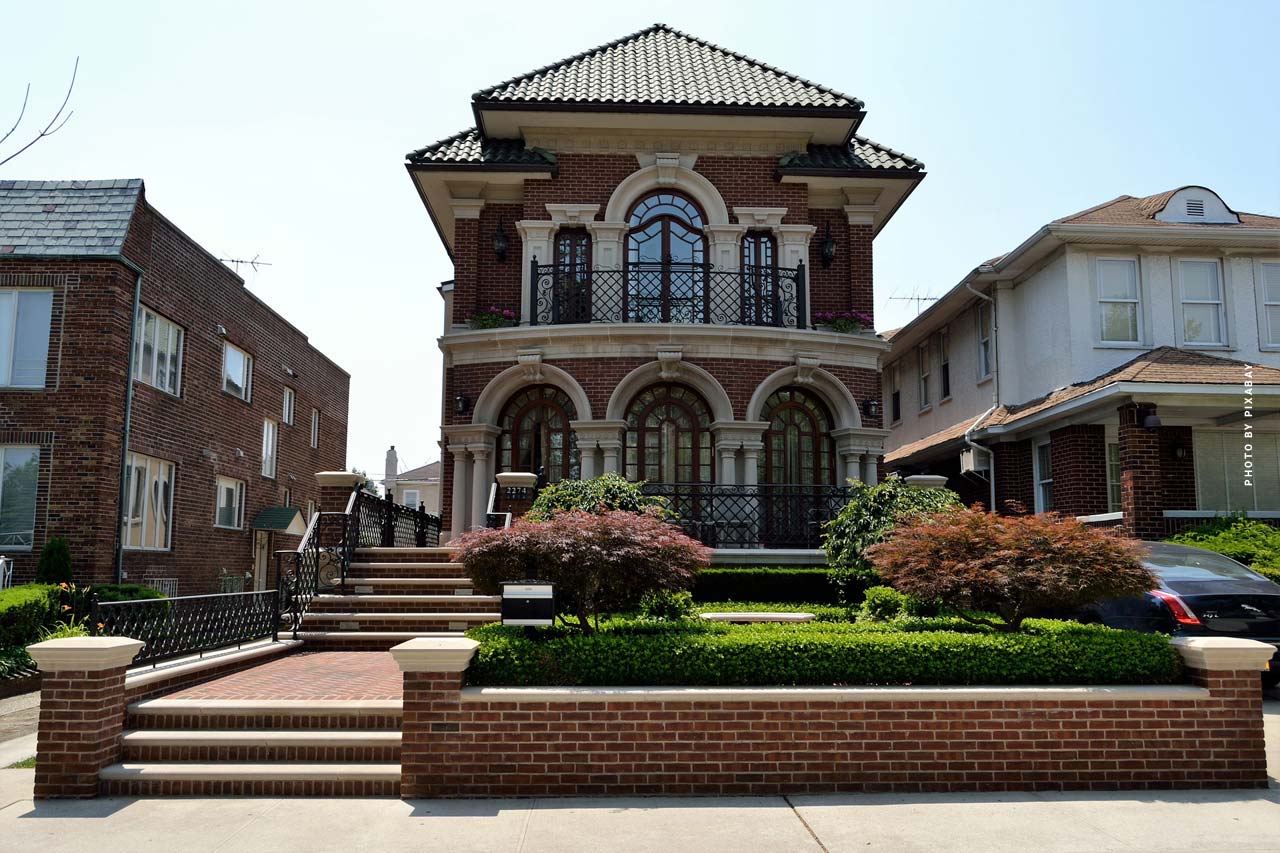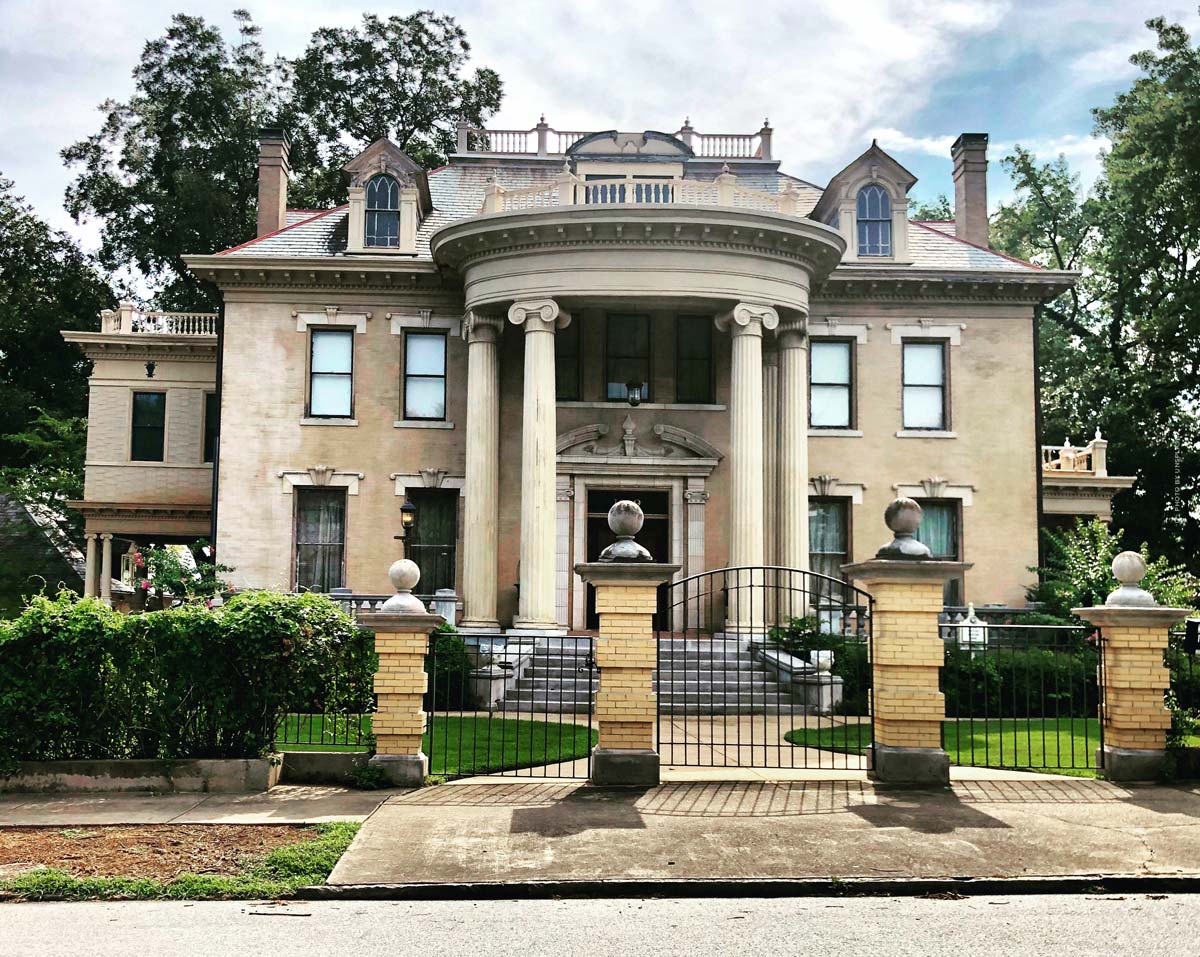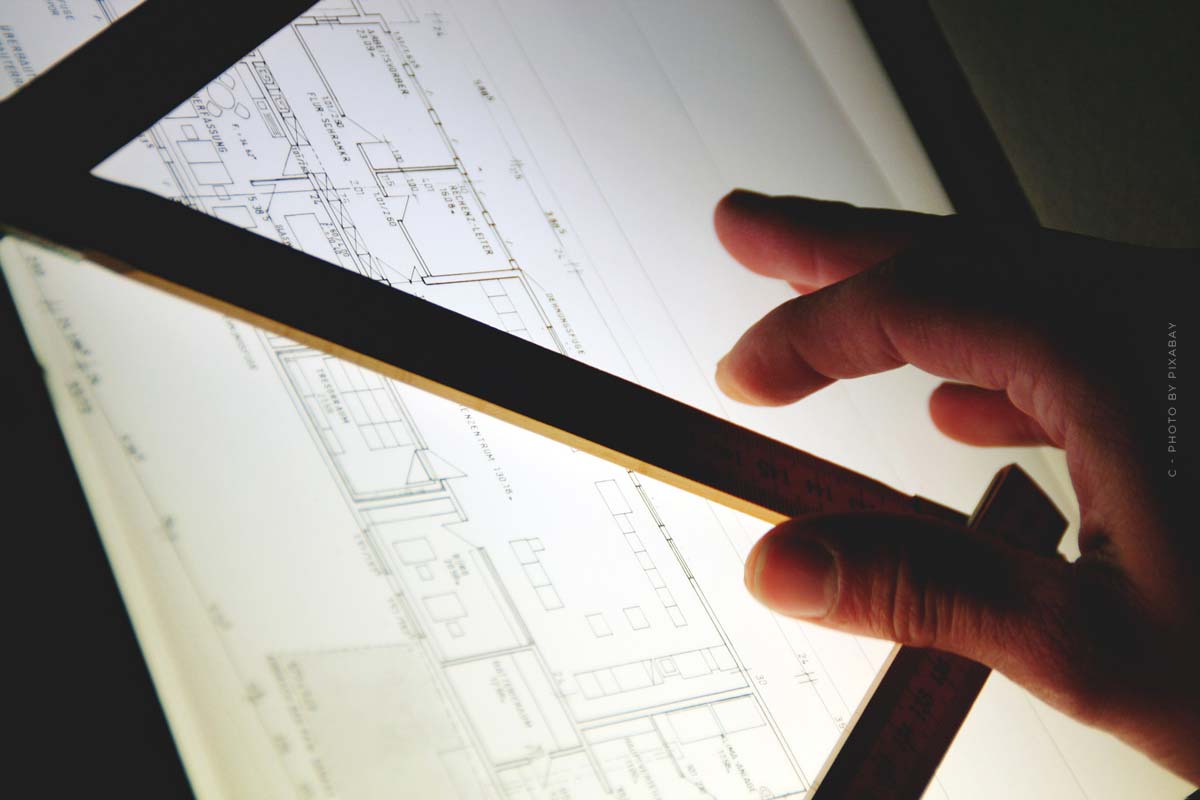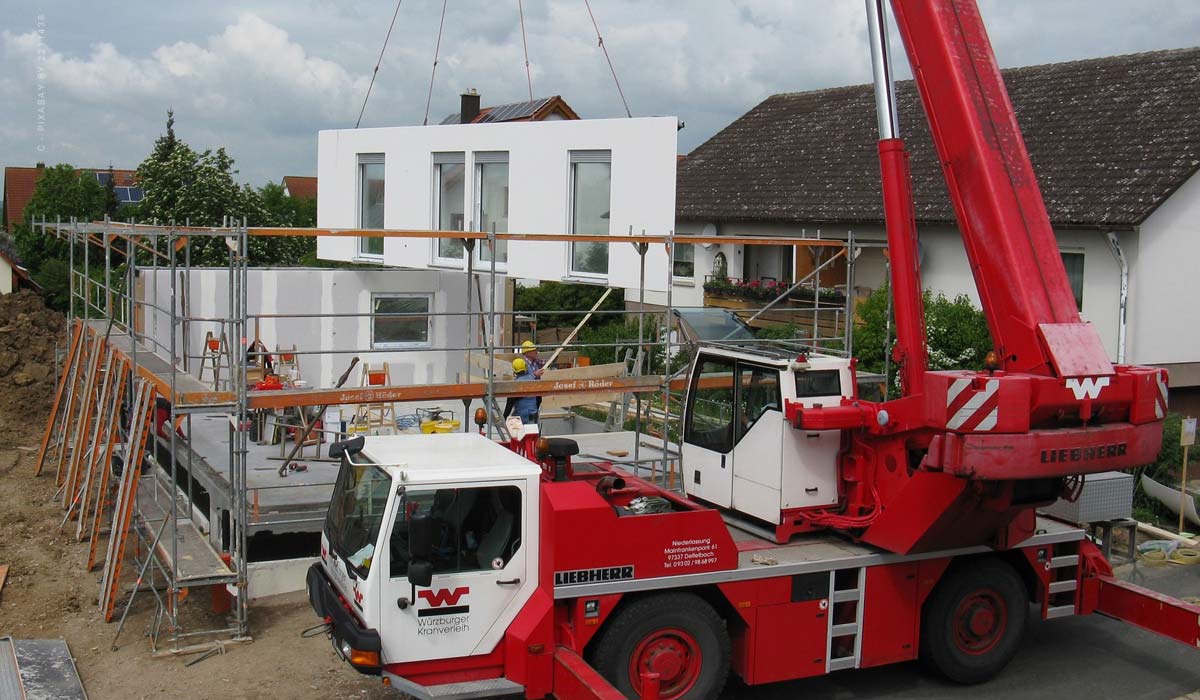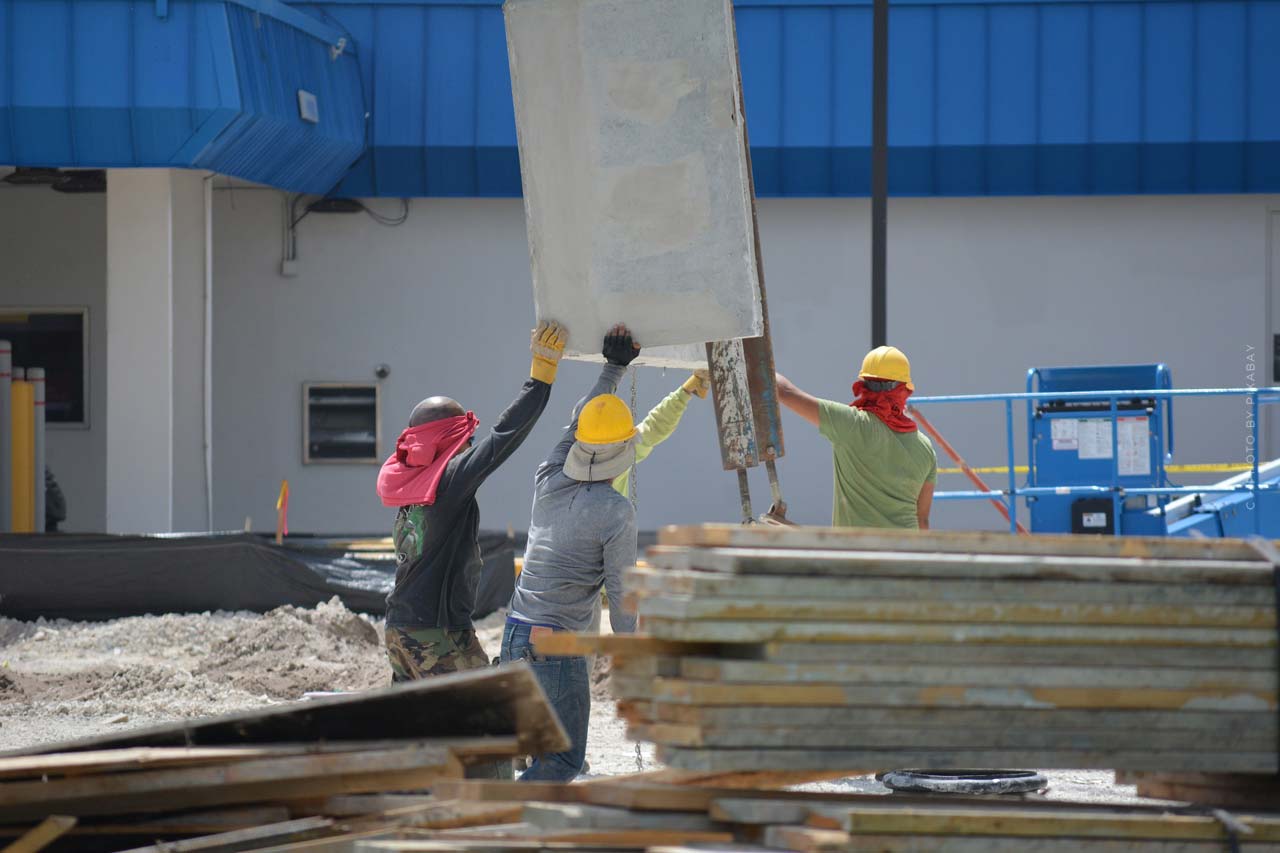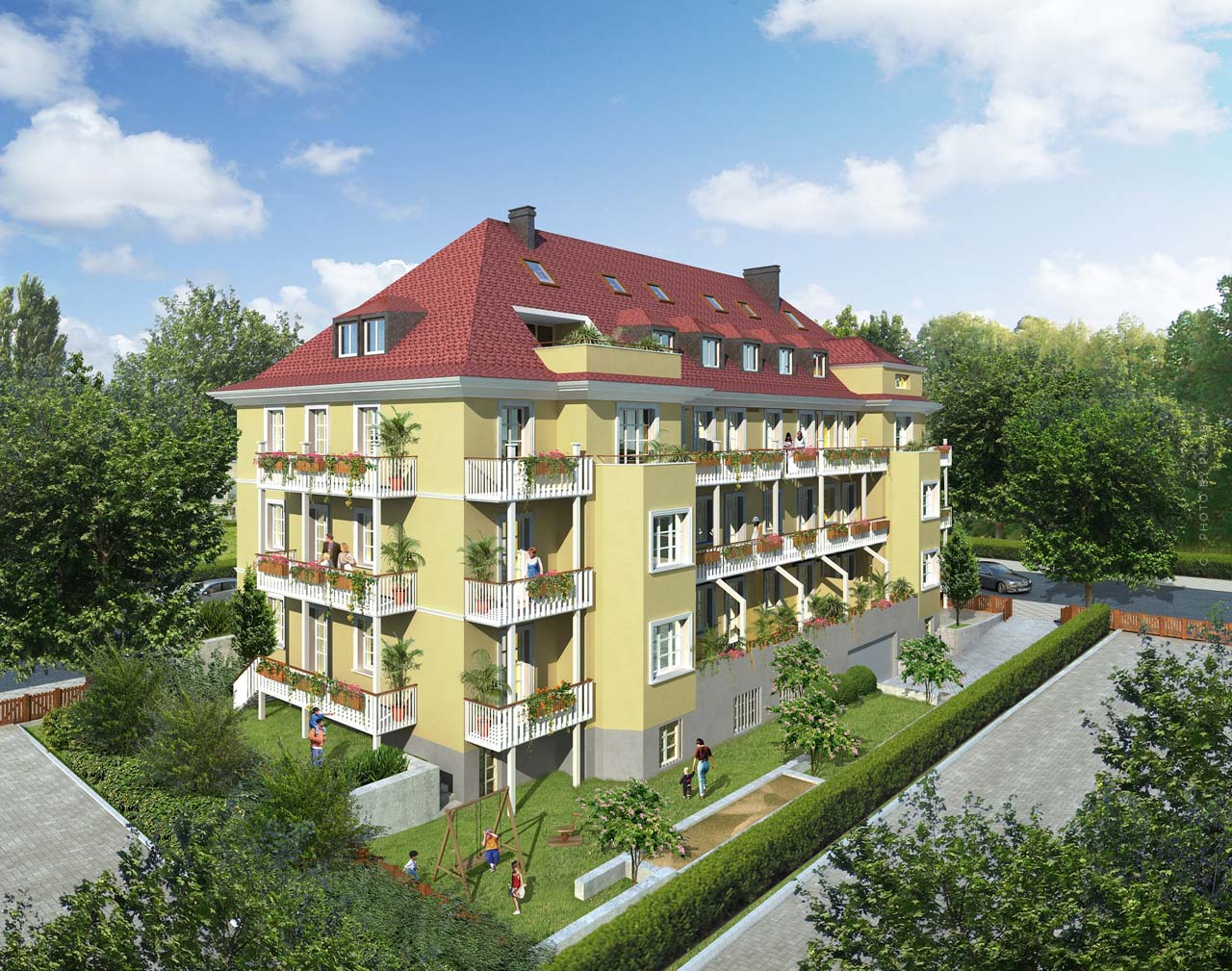Buy a House: Financial planning, broker, commission, loans and service charges
The dream of owning your own home, living independently within your own four walls, being able to design everything yourself and furnish it according to your individual wishes. But with these desire conceptions it is not done still for a long time, because to a house buying belongs much more. To the goal of being able to lean back relaxed in its own garden and enjoy life leads a long way. In order to arrange this as simply as possible, there are here the best Tipps & Tricks, which one should consider with the house buying exactly, and which Stolperfallen one can avoid.
The Purchase: Broker, Commission & Credits
With the first thoughts of a real estate purchase many questions arise immediately. What is the best way to proceed? Do I need an estate agent or should I search on my own? How big should the house be, how many square meters and rooms does it need? In which area do I search and above all how much budget do I need? We will now get to the bottom of all these questions.
The requirements – the way to your dream property
As a first step on the way to your dream property, you should first consider what your requirements are for your home. How many rooms do you need and how many square meters should your house and your property have in the best case? Of course, they should also be aware of the area they would like to move to and use this scheme to adapt to your needs. A house in a city will be more expensive than a house in a suburb or in the country. Do you need a school nearby or should a supermarket be within walking distance. Do you want a garden or a child friendly environment. Of course you should also think about the exterior of your property. Do you prefer a certain style of house, should the house be more modern or more Nordic style? After you have clarified these basic questions and know how you imagine your dream property, you can proceed to step 2.
Real estate as capital investment: Special
- Part: Classical or exotic investment – Which real estate is suitable as capital investment?
- Part: Real estate as capital investment – What do I have to pay attention to?
Financial planning – financing possibilities and requirements
The financial planning takes a large part with the way to the own house, because with construction financing and loans one enters a large obligation, which can cover several decades. Therefore everyone, which plays with the thought to buy a real estate should examine itself first once the financial own resources. In addition belongs for example whether property or a building society contract is already present and how highly this is. Also should be examined which means can be actually called at short notice. In order to obtain a loan from a bank, it is recommended to have at least 10-20% of the required sum (purchase sum and ancillary purchase costs) as equity. The higher the equity capital, the better.
Financial resilience
Of course, personal circumstances also play a role in financial resilience. These include, for example, family planning and the desire to have children, the employment relationships of the partners and of course marital status. One should consider whether further large financings are planned in the next years and how these affect the financial situation. It is also important to determine the permanent expenses so that these can be included in the planning. This includes fixed costs, such as insurance and incidental expenses, but also vacations, car purchase or provisions for financial security.
Repayment period
The next important point is the repayment period, because you should think about how long you want to make a repayment and therefore also how long you want to be in debt. It is recommended to plan the financing in such a way that the debtors are debt-free until the age of 60. However, this also depends on how high the repayment rate can be. The shorter the repayment period, the higher the repayment, but there are also somewhat cheaper interest rates for shorter credit periods. As rule of thumb one says with a repayment rate of two per cent the repayment duration amounts to in approximately thirty years.
Compile the documents
Once these questions have been clarified, it is time to compile the documents for the banks, because they need many different documents to be able to apply for an offer in the first place. Such documents include monthly income, which is proven by the income tax assessment, as well as a list of regular expenses and current assets. Also, at this stage they should already have a purchase object and in the best case cost estimates, because the more accurate and comprehensive the documents they submit, the faster and better the bank can prepare an offer. Compare many different offers, from several banks as there can be many differences and you can find the best offer for your project.

Purchase of a Home: From Rental Apartment to Home of your Own
With the first thoughts of a real estate purchase many questions arise immediately. What is the best way to proceed? Do I need an estate agent or should I search on my own? How big should the house be, how many square meters and rooms does it need? In which area do I search and above all how much budget do I need? We will now get to the bottom of all these questions.
Dream property searched: Basic requirements for your house purchase
As a first step on the way to your dream property, you should first consider what your requirements are for your home. How many rooms do they need and how many square meters should their house and their property have in the best case?
Of course, you should also be aware of the area you want to move to and use this scheme to adjust your requirements. A house in a city will be more expensive than a house in a suburb or in the country. Do you need a school nearby or should a supermarket be within walking distance. Do you want a garden or a child friendly environment. Of course you should also think about the exterior of your property. Do you prefer a certain style of house, should the house be more modern or more Nordic style? After they have clarified these basic questions and know how they imagine their dream property, they can go to step 2.
Financial planning: financing options & repayment
Financial planning takes a large part with the way to the own house, because with construction financing and loans one enters a large obligation, which can cover several decades. According to this, everyone who is thinking about buying a property should first of all check their financial resources. In addition belongs for example whether property or a building society contract is already present and how highly this is. Also should be examined which means can be actually called at short notice. In order to obtain a loan from a bank, it is recommended to have at least 10-20% of the required sum (purchase sum and ancillary purchase costs) as equity. The higher the equity, the better.
Of course, personal circumstances also play a role in financial resilience. These include, for example, family planning and the desire to have children, the employment relationships of the partners and of course marital status. One should consider whether there are plans for further large financing projects in the next few years and how these will affect the financial situation. It is also important to determine the permanent expenses so that these can be included in the planning. This includes fixed costs, such as insurance and incidental expenses, but also vacations, car purchase or provisions for financial security.
The next important point is the repayment period, because you should think about how long you want to make a repayment and therefore also how long you want to be in debt. It is recommended to plan the financing in such a way that the debtors are debt-free until the age of 60. However, this also depends on how high the repayment rate can be. The shorter the repayment period, the higher the repayment, but there are also somewhat cheaper interest rates for shorter credit periods. As rule of thumb one says with a repayment rate of two per cent the repayment duration amounts to in approximately thirty years.
Once these questions have been clarified, it is time to compile the documents for the banks, because they need many different documents to be able to apply for an offer in the first place. Such documents include monthly income, which is verified by the income tax assessment, as well as a list of regular expenses and current assets. Also, at this stage they should already have a purchase object and in the best case cost estimates, because the more accurate and comprehensive the documents they submit, the faster and better the bank can prepare an offer. Compare many different offers, from several banks as there can be many differences and you can find the best offer for your project.
Search: advertisements, brokers & the big choice
There are many different ways to approach the house search. Of course an estate agent has many advantages, because he accompanies you from the beginning to the end of your search, knows insider tips and can help you with words and deeds. But if you prefer to search on your own, there are many online portals, such as ‘Immonet’ or ‘Immobilienscout24’ where you can view a large selection of exposés. Let also their friends and acquaintances know that they are looking for a house, because much can be done here also through contacts. During viewings they should pay attention to one or the other to collect as much information as possible about the property. First of all, you should only view the property in daylight, so you can see defects and faults much better than in artificial light. Take a close look at the surroundings and pay attention to possible noise, smells and the parking situation. The infrastructure around the property should also be carefully researched to compare whether it fits your requirements. A conversation with the neighbors can also reveal helpful information.
On the object itself, they should pay attention to the condition of the facade, the roof and the attic as well as the basement rooms and windows. Water stains on walls and ceilings, outdated windows with low insulation or a leaking roof can be detected during these observations. Take pictures and of the object and any faulty areas. Of course you will learn a lot about the object through the exposé, but not all questions will be answered here. So make a list of questions, so that you can find out as much as possible about the object during your visit. Possible questions could be for example the following:
- Do renovations or refurbishments need to be carried out?
- What are the roof and windows like?
- What kind of heating is in the object, how old is it and what kind of insulation does the house have? It is always useful to have an energy certificate, so ask explicitly for it.
- The floor plan with drawings of load-bearing walls to be able to plan a possible conversion.
- The operating cost account
- Check the incidence of light and the cardinal points, for example to find out when the sun shines in the garden.
- Ask about the reason for the sale and the duration of the vacancy
- Do fixtures such as kitchen, cupboards, etc. remain in the house and must they be taken over?
- Visit different objects to create a selection and to see different offers. If you are unsure, such as damp walls, etc., it is better to consult an expert and let him evaluate the whole thing.
The Search – Brokers, Patience and Advertisements
There are many different ways to approach the house search. Of course, an estate agent has many advantages, because he accompanies you from beginning to end on your search, knows insider tips and can help you with advice and support in your decision. But if you prefer to do the search on your own, there are many online portals, such as ‘Immonet’ or ‘Immobilienscout24’ where you can view a large selection of exposés. Let also your friends and acquaintances know that they are looking for a house, because a lot can be done here through contacts. During viewings they should pay attention to one or the other in order to gather as much information as possible about the property. First of all, you should only view the property during daylight, so you can see defects and faults much better than with artificial light. Take a close look at the surroundings and pay attention to possible noise, smells and the parking situation. The infrastructure around the property should also be carefully researched to compare whether it fits your requirements. A conversation with the neighbors can also reveal helpful information.
Condition of facade, roof and attic
On the object itself, they should pay attention to the condition of the facade, the roof and the attic, as well as the basement rooms and windows. Water stains on walls and ceilings, outdated windows with low insulation or a leaking roof can be detected by these observations. Take pictures and of the object and any faulty areas. Of course you will learn a lot about the object through the exposé, but not all questions will be answered here. So make a list of questions, so that you can find out as much as possible about the object during your visit. Possible questions could be for example the following:
- Do renovations or refurbishments need to be carried out?
- What are the roof and windows like?
- What kind of heating is in the object, how old is it and what kind of insulation does the house have?
- It is always useful to have an energy certificate, so ask explicitly for it.
- The floor plan with drawings of load-bearing walls to be able to plan a possible conversion.
- The operating cost account
- Check the incidence of light and the cardinal points, for example to find out when the sun shines in the garden.
- Ask about the reason for the sale and the duration of the vacancy
- Do fixtures such as kitchen, cupboards, etc. remain in the house and must they be taken over?
- Visit different objects to create a selection and to see different offers. If you are unsure, such as damp walls, etc., it is better to consult an expert and let him evaluate the whole thing.
The Legal Bases – Purchase Agreement, Land Registry & Co.
In order to buy a house, legalities have to be considered and many standards have to be met. In order to do this correctly and to make the sale of the house right, some things have to be followed.
The notarization of a contract of sale – the notary helps with land registry and more
The contract of sale meets the norm, if as stated in § 311b BGB
A notarial recording is present, when the property or property-equivalent rights are transferred.
However, the transfer of ownership is not valid after signing and notarization, but only after entry in the land register. First, a notary public prepared a draft of the purchase contract, which should be fair to both parties. This is drawn up some time before signing so that both parties can check it. At the notarization meeting, the notary reads the contract out again and both parties can ask questions. The notary also informs about the consequences of the house sale and explains the further steps of the transfer of ownership.
Until the entry into the land register, the buyer’s claim to the property is secured by the entry of a so-called conveyance notice in the land register. This ensures that the transfer of ownership of the property can be handled safely. The transfer of ownership in the land register will only be arranged by the notary when the purchase price has been transferred in full. The tax office must also confirm with a clearance certificate that the buyer has paid the land transfer tax. At which point in time the property is transferred to the buyer, i.e. the “economic transfer” takes place, is also determined in the notary contract. From this point on, the buyer bears all costs and is liable for the property. However, he is not the final owner until the transfer of ownership is complete and his name is entered in the land register.
The transfer of ownership – from seller to buyer
By concluding the purchase agreement, not only does the ownership of a property pass to the purchaser, but the purchaser also assumes all risks, taxes and burdens associated with the ownership of the property. This allows the new owner to deal with the property as he or she wishes. The transfer of ownership is precisely defined in terms of dates and is completely independent of the registration of the new owner in the land register, i.e. the transfer of ownership.

Construction & Costs – This is What You Have to Expect When Buying Real Estate
After you have decided to purchase your dream property, the question of the right financing arises. Here you should inform yourself about all possibilities, because you will have to live with the decision about a financing for the next years. Especially for inexperienced people a real estate purchase is a big step, so you should be especially sure that you find the right offer.
Construction: 6 Tips for Successful Financing
6 tips for successful financing, and check out 3 further practical construction financing tips.
Tip 1 – Determine your initial situation
Before you start your search, you should carefully determine your budget and requirements. This includes the living space, the number of rooms, the construction and equipment, the location, the architecture, the local transport and the distance to important places such as the workplace or schools. When you are sure of your requirements, clarify your budget. How much equity can you raise? It is also important to determine the maximum future monthly costs and how much you can really afford. Compare your current monthly fixed costs and expenses. Once you have created an overview, you will have a rough idea of what you can look for.
Tip 2 – Calculate a repayment
Rent and interest are real costs, but when it comes to repayment the money is used as a kind of installment savings plan. This means that your loan debt decreases while your net assets increase. So you should also include the monthly loan repayments in your bills. Think about how many years you would like to have the debt paid off and calculate with this value. Remember that the rent you pay each month is not an investment in value, while the repayment will still increase your net assets each month.
Tip 3 – Compare as many offers as possible
The more offers you request and compare, the more choice you have and the sooner you will find your dream property. Don’t be afraid to search extensively and look at many properties. Do not only search on real estate portals, but also in newspaper offers, ask your friends and acquaintances and always keep your eyes open. The efforts during the search will definitely pay off for you in the long run.
Tip 4 – Choose long-term financing
The important thing with long-term financing is that you secure the low interest rates for as long as possible. Best for the next 15 years or more. This guarantees you a solid repayment rate. Depending on the purchase price, use 20% equity or less and choose a classic annuity loan. With this loan the repayment should be about 2%. If it is higher, your return is also higher in case of inflation. If it is lower, however, you will not have the same amount of repayment as you would need to make in order not to run into difficulties with follow-up financing. If you should take up additionally still another loan, like for example a promotion loan the terms must agree, since otherwise they can threaten early repayment penalties with a sale.
Tip 5 – Get several financing offers
Of course it is most uncomplicated and simplest to take up the loan simply with the house bank and to complete the financing over it. However, there are big differences in the financing offers of different banks. For this reason you should get at least two different offers, if not even more, to find out which bank offers the fairest and best conditions. Never lose sight of the fact that the loan is for a long period of time and that an interest saving of 0.2% per year can make a huge difference for you.
Tip 6 – Do not be afraid of indebtedness
Getting into debt is a big decision, but if you choose ‘good debt’, you’ll even win money in the end. Home financing is one of those ‘good schools’, as you save on housing costs and protect yourself against inflation. In the end, you gain real wealth and do not lose any, as with an investment in consumer goods. For this reason, do not repay too quickly and stick to an initial repayment of 2% and a term of 15 years. So you do not need to be afraid of rising interest rates.

The follow-up loan – debt rescheduling and long-term planning
When it comes to financing, it is important that you prove to your bank that you are a future borrower. Because for borrowers who have already proven for several years that they are able to service the loan according to the contract, banks are happy to offer better conditions. At the beginning of a loan, the monthly installment is usually mostly interest and only in the course of time, the proportion of repayment will increase. In the case of a debt rescheduling, a part of the loan is usually already repaid. For the banks, this means that the loan-to-value ratio is lower than with an initial borrowing and the consulting effort is also lower, since the customers already know how a financing is going to work and what is expected of them. The bank has thus a smaller expenditure of work with the customer and thus also the offer preparation becomes simpler and never accordingly also less time required.
So the banks have good reasons to woo rescheduled debtors, because you can gain advantages from it. But also for the borrowers a rescheduling is often more favorable. Depending on the financial market situation, the interest rates can be so low that it is more worthwhile for you to reschedule an old loan than to continue paying it off at the old conditions. Today the interest rates are often better than when you concluded the financing. So if you can expect interest rates to rise in the future, it is definitely advisable to choose a long fixed interest period and secure good interest rates. In this way you will achieve a quick adjustment of interest rates in the event of premature termination of the old loan.
If you want to do everything right, consider already today how you want to tackle the rescheduling of your loan in a few years in order to secure a good follow-up financing. This is even doubly worthwhile if providers take over the costs of the debt rescheduling for the borrower.
The service charges – hidden costs when buying real estate
When a purchase contract is concluded, the financing is already under the umbrella. However, the additional costs are often underestimated. The invoices from the broker, notary, land registry and tax office come as soon as the loan is fixed. Because of this, the loan is often underestimated. 20% of the incidental building costs should be included in the loan at least in addition to the purchase price and are quite realistic. The overview shows the 4 biggest additional costs you expect when buying a house.
Fees – notarization of the purchase contract
The fees for the notary appointment are probably one of the largest items in the additional costs of the house purchase. The notary fees are fixed and may not deviate from these in any direction, but even these are quite high. As a rule of thumb, about 1.5% of the purchase price is fixed – and this only for the signature of the purchase contract. So if you purchase a property with a purchase price of 100,000 Euros, the notary’s fee is 1500 Euros, which the buyer usually has to pay. The exact fees for notaries in Germany are laid down in the notarial fee schedule, but can also be calculated online.
Taxes – Real estate transfer tax for the tax office
As soon as the contract is signed at the notary and the purchase contract is notarized, the buyer will receive mail from the tax office. The next step is to claim the real estate transfer tax from the buyer. This is incurred somewhat differently. Normally it is 3.5% of the purchase price of the property in Germany. In some federal states, such as Hamburg, Berlin and Saxony-Anhalt, it is 4.5% of the purchase price of the property. With a purchase price of for example 100 000 Euro you pay another 3500 / 4500 Euro for the land transfer tax. This debt should be paid immediately, because only when the amount has been received by the tax office, the latter will issue the so-called clearance certificate. This certificate is mandatory for the registration of the new owner in the land register. This is arranged by the land registry office and costs again fees, which are relatively low.
Commission – Brokers calculate your share
Whoever buys a property or a plot of land through an estate agent must of course include the commission from the agent in the overall calculation. You will usually receive the invoice from the real estate agent directly after the notary has taken the minutes. The amount of the commission varies and depends on various factors, such as the region. Mostly it varies between four and six percent of the purchase price of the property. For a real estate purchase price of 100 000 Euros, you will pay between 4000 and 6000 Euros only for the real estate agent. However, it is important to know that it is definitely worthwhile to negotiate with the real estate agent’s commission, as it is known that this is associated with a large margin of maneuver. A recommended total commission of 3.48 percent including VAT is a recommendable and realistic value.
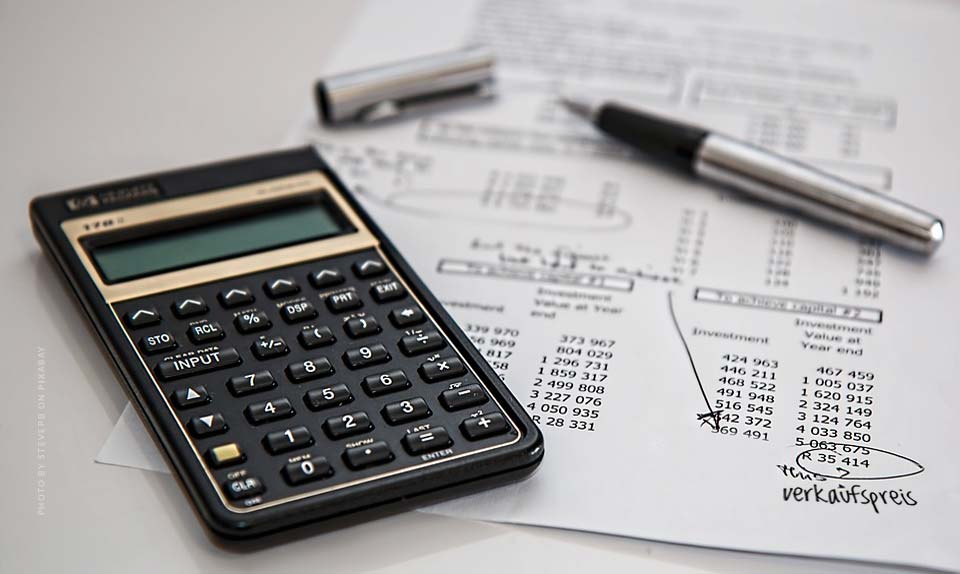
The AAdvantages & Disadvantages of a Real Estate Purchase
Also the real estate purchase offers advantages and disadvantages. Depending on the individual life situation, different scenarios more or less offer themselves. However, buying a house is always a big investment and should always be well considered and completely thought through. As a decision guidance, we list some advantages and disadvantages of the real estate purchase.
The advantages – no rent, security and your own four walls
A house purchase, can offer many advantages. By buying a house, you live in your own four walls, you are the master of the house and can design it according to your own wishes. Besides, one has no monthly rent, which one must pay and as long as the credit is paid off, only monthly additional expenses stand in line. A house also offers a lot of space and, depending on your life situation, a lot of room for family planning and hobbies. In addition, changes can be made in your own house at any time if you want to and do not have to clarify these changes with a landlord beforehand. Further advantages are the security for the old age, because even if the pension should not be so large, one can continue to live in his home and does not have to move into smaller or more favorable conditions. A house is also a part of the inheritance for the next generation and represents an investment of value, because spent rent is lost and cannot be passed on to children and grandchildren.
The disadvantages – indebtedness and personal responsibility
Among the disadvantages of buying a house are, for example, the usually associated debt and taking out a loan. Likewise one is responsible for the object from the moment of the purchase and must let repairs, changes etc. make themselves. Besides they have much surface and area, which must be likewise maintained and thus for example work in the garden or cleaning of the house result and consume time. In addition, they are tied to one location with a house and cannot simply move to another city or live abroad for a period of time, as they enter into a commitment with the purchase.
House purchase, house building or nevertheless rented apartment ?
Buy a house or rather rent an apartment. Everyone faces the decision in very different life circumstances and for each one there is a different answer to this question. There are advantages and disadvantages for both options, but one side usually outweighs the other.
Buy a house: Advantages and disadvantages of real estate search
A house purchase, can offer many advantages. By buying a house, you live in your own four walls, you are the master of the house and can design it according to your own wishes. Besides, one has no monthly rent, which one must pay and as long as the credit is paid off, only monthly additional expenses stand in line. A house also offers a lot of space and, depending on your life situation, a lot of room for family planning and hobbies. In addition, changes can be made in your own house at any time if you want to and do not have to clarify these changes with a landlord beforehand. Further advantages are the security for the old age, because even if the pension should not be so large, one can continue to live in his home and does not have to move into smaller or more favorable conditions. A house is also a part of the inheritance for the next generation and represents a value investment, because spent rent is lost and cannot be passed on to children and grandchildren.
Among the disadvantages of buying a house are, for example, the usually associated indebtedness and taking out a loan. Likewise one is responsible from the moment of the purchase for the object and must let repairs, changes etc. make themselves. In addition, they have a lot of space and space that also needs to be maintained and therefore, for example, work in the garden or cleaning the house is necessary and consumes time. In addition, they are tied to one location with a house and cannot simply move to another city or live abroad for a period of time, as they enter into a commitment with the purchase.
Rent an apartment: Advantages and disadvantages with tenancy
An apartment to rent also offers many advantages but also disadvantages. First of all one has less responsibility, because in case of damages and accidents the landlord has to repair the arisen damage. Besides one is very flexible, since a tenancy can be solved relatively simply. So it is easier to move to another city or to increase the living space. However, one must of course pay monthly amounts, which are lost in this sense. So you are financially bound to certain monthly expenses. Also, it is not easy to carry out cosmetic repairs in rented apartments, as these must always be discussed with the landlord first.
Building a house: Advantages and disadvantages for the building project
Building a house is a big decision that can have many advantages and disadvantages. When building one has naturally the large advantage to get a custom-made house cut to itself. All decisions can be made by yourself, from the number of square meters to the number of rooms and the room layout. In addition, with a building of a house a large financial risk goes in addition, accompanies. Because one has no fixed price and the budget is often exceeded at the end. Besides with a house building much can go wrong, which represents likewise a financial risk. An advantage is however that one has free choice, both regarding the property and the place, where the property is located. Here one can likewise arrange individually the entire property inclusive garden. Besides a building of houses has the advantage that the newest technology can be inserted and thus a very good energy efficiency exists, which can lower additional costs again.
Whether a rented apartment, a house purchase or a house building is more suitable, is to be co-ordinated with the individual life situation. All options have advantages and disadvantages and can represent good solutions.
